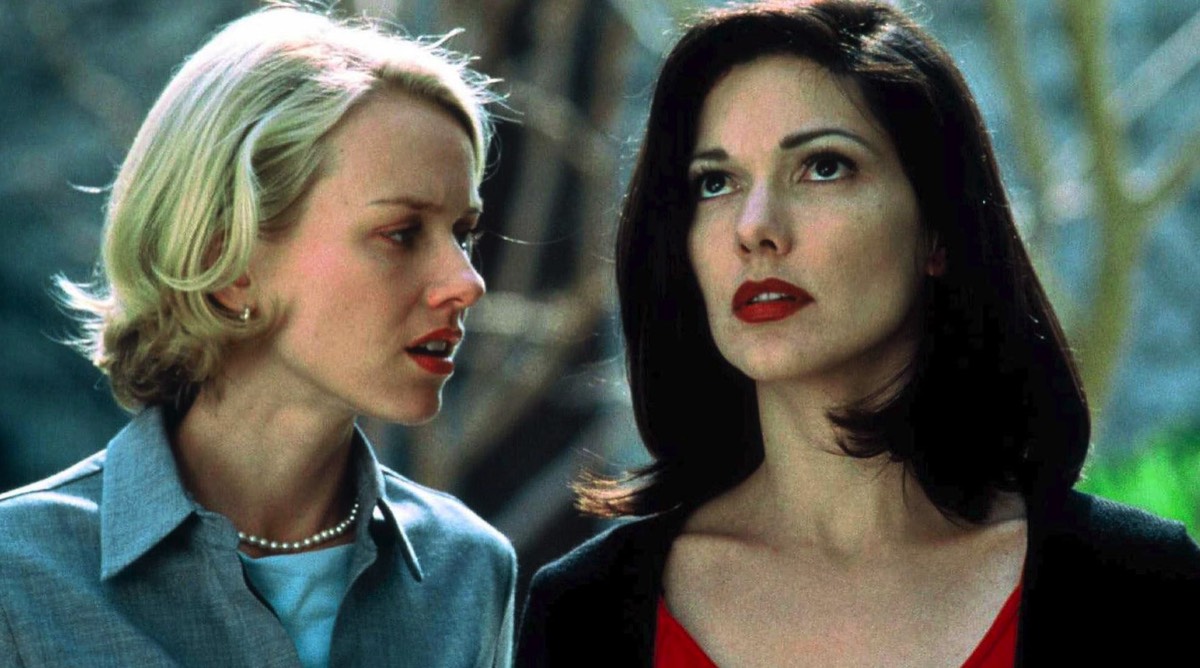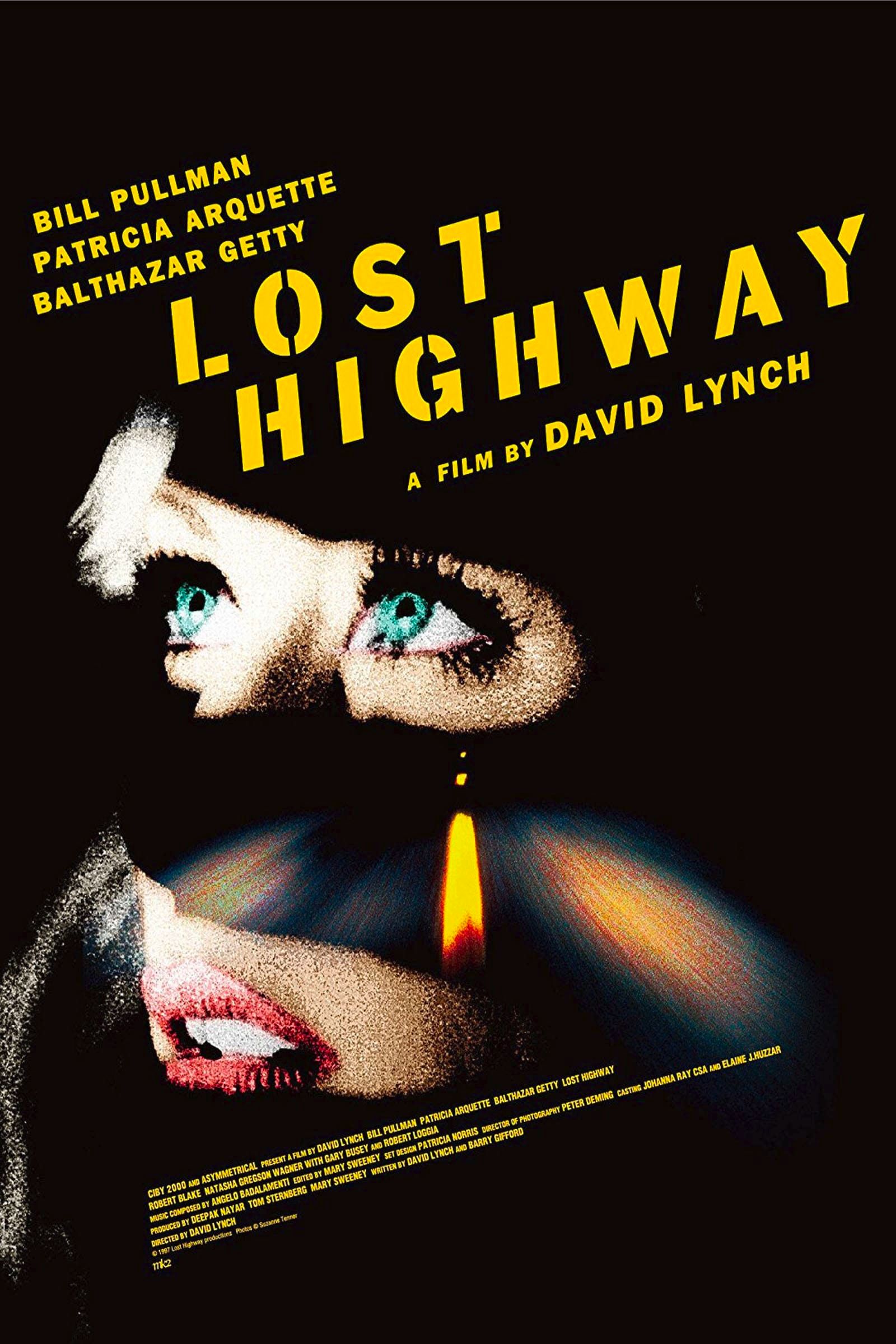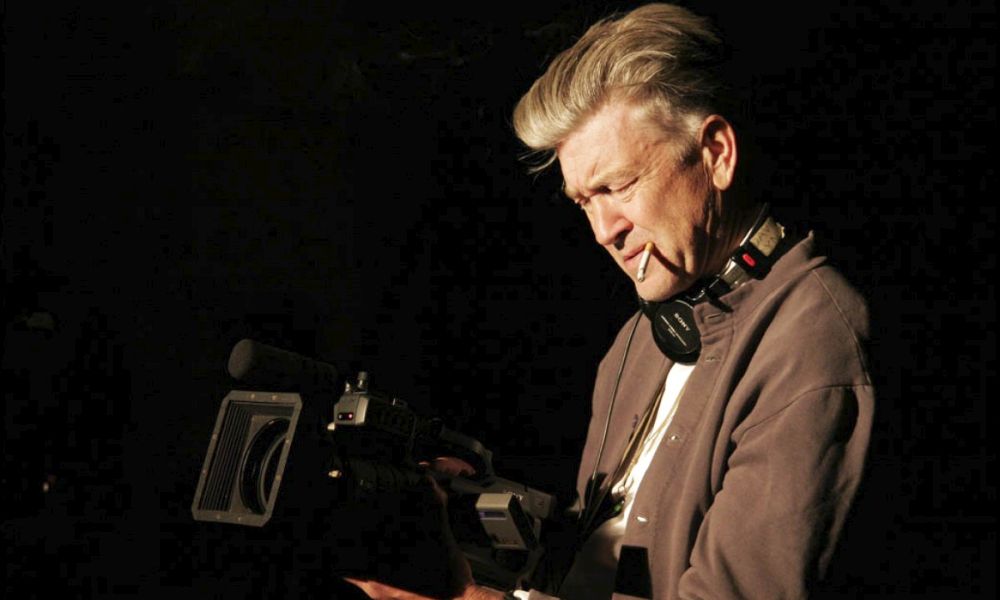"From his avant-garde debut, Eraserhead, onwards, Lynch has repeatedly imagined the American Dream as a nightmare of dangerous liaisons, unspeakable crimes, irrational obsessions, death, decay and delirious perversity." - Geoff Andrew (The Director's Vision, 1999)
David Lynch
Director / Screenwriter / Actor / Producer / Editor / Cinematographer
(1946-2025) Born January 20, Missoula, Montana, USA
Top 250 Directors / 21st Century's Top 100 Directors / 50 Key Noir Directors
(1946-2025) Born January 20, Missoula, Montana, USA
Top 250 Directors / 21st Century's Top 100 Directors / 50 Key Noir Directors
Key Production Countries: USA, France
Key Genres: Avant-garde/Experimental, Surrealist Film, Drama, Mystery, Short Film, Animation, Americana, Psychological Thriller, Road Movie
Key Collaborators: Angelo Badalamenti (Composer), Harry Dean Stanton (Leading Character Actor), Kyle MacLachlan (Leading Actor), Mary Sweeney (Producer/Editor), Frederick Elmes (Cinematographer), Peter Deming (Cinematographer), Laura Dern (Leading Character Actress), Patricia Norris (Production Designer), Neal Edelstein (Producer), Freddie Francis (Cinematographer), Duwayne Dunham (Editor), Naomi Watts (Leading Character Actress)
Key Genres: Avant-garde/Experimental, Surrealist Film, Drama, Mystery, Short Film, Animation, Americana, Psychological Thriller, Road Movie
Key Collaborators: Angelo Badalamenti (Composer), Harry Dean Stanton (Leading Character Actor), Kyle MacLachlan (Leading Actor), Mary Sweeney (Producer/Editor), Frederick Elmes (Cinematographer), Peter Deming (Cinematographer), Laura Dern (Leading Character Actress), Patricia Norris (Production Designer), Neal Edelstein (Producer), Freddie Francis (Cinematographer), Duwayne Dunham (Editor), Naomi Watts (Leading Character Actress)
"Lynch uses the cinema to express non-rational energy in tangible form (visually and aurally). This energy is familiar to us all, but has been repressed in us by language, rationality, and education. This is one reason why Lynch's films seem to be nonsensical, but nonetheless evoke powerful feelings. It is easy to make nonsensical films that don't evoke any feelings at all, because they don't engage with the non-rational energy that Lynch evokes." - Thomas Elsaesser & Warren Buckland (Studying Contemporary American Film: A Guide to Movie Analysis, 2002)
"The undoubted perversity that runs throughout the works of David Lynch extends to his repeated and unexpected career turns... Both a genuine artist and a cunning commercial survivor, Lynch stands, with maybe David Cronenberg, as the Best Hope for cinema in the 1990s." - Kim Newman (International Dictionary of Films and Filmmakers, 1991)

Mulholland Dr. (2001)
"Although his cult star has waxed and waned, this American specialist in subliminal surrealism has always reasserted his grip on his followers with some new aspect of his own ciné-fantastique. Lynch makes puzzle pictures that no one is expected to solve, and jigsaw films whose pieces never quite fit together. And, just to prove himself capable of making a 'normal' film, he made one on a very abnormal subject, The Elephant Man, and was nominated for an Academy Award in the doing." - David Quinlan (Quinlan's Film Directors, 1999)
"In his 40 years of film-making, the director has taken audiences from sunlit American idylls to surreal dimensions populated by demons, doppelgangers and psychotic killers. His are scenes you can’t forget: the whimpering, deformed baby in Eraserhead, the severed ear in Blue Velvet, the blood-spattered, skull-crushing violence of Wild At Heart, the nuclear explosion in Twin Peaks: The Return." - Rory Carroll (The Guardian, 2018)
"Perhaps the most original and imaginative director to emerge from America in recent years, David Lynch reveals an uncanny ability to draw upon his own inner fantasies and create strange, sinister worlds at once unreal and oddly familiar. If the films' precise meaning is sometimes less than clear, their power and invention remain virtually unparalleled in contemporary mainstream cinema." - Geoff Andrew (The Film Handbook, 1989)
"Twin Peaks is the craziest film in the history of cinema. I have no idea what happened, I have no idea what I saw, all I know is that I left the theater floating six feet above the ground." - Jacques Rivette
"He made his feature film debut with Eraserhead (1976) and subsequently became known for his dark, sometimes nightmarishly intense thrillers and his fascination with the perverse, sometimes surreal underside of small-town American life." - Chambers Film Factfinder, 2006
"David Lynch has accumulated a huge following of audiences willing to enter his bizarre and labyrinthine dream world." - Ronald Bergan (Film - Eyewitness Companions, 2006)
"If high hair is an indication of genius, then David Lynch's plumage outclasses that of his contemporaries - steeper than Jim Jarmusch and wilder than David Cronenberg. The same goes for his oeuvre. With their steep and wild puzzle narratives, Lynch's films are to be experienced instead of explained - never good with words, he is more of a preverbal philosopher than an evangelist, questioning instead of answering." - Ernest Mathijs (501 Movie Directors, 2007)
"My movies are film-paintings - moving portraits captured on celluloid. I'll layer that with sound to create a unique mood -- like if the Mona Lisa opened her mouth, and there would be a wind, and she'd turn back and smile. It would be strange and beautiful." - David Lynch
"Directors who have inspired me include Billy Wilder, Federico Fellini, lngmar Bergman, John Ford, Orson Welles, Werner Herzog, Stanley Kubrick, Alfred Hitchcock, Francis Ford Coppola and Ernst Lubitsch. In art school, I studied painters like Edward Hopper, who used urban motifs, Franz Kafka is my favorite novelist. My approach to film stems from my art background, as I go beyond the story to the sub-conscious mood created by sound and images." - David Lynch
Selected Filmography
{{row.titlelong}}
GF Greatest Films ranking (★ Top 1000 ● Top 2500)
21C 21st Century ranking (☆ Top 1000)
T TSPDT N 1,000 Noir Films R Jonathan Rosenbaum
21C 21st Century ranking (☆ Top 1000)
T TSPDT N 1,000 Noir Films R Jonathan Rosenbaum
David Lynch / Favourite Films
Hour of the Wolf (1968) Ingmar Bergman, Lolita (1962) Stanley Kubrick, Mon oncle (1958) Jacques Tati, Rear Window (1954) Alfred Hitchcock, Sunset Blvd. (1950) Billy Wilder.
Source: AFI Fest (2010)
Hour of the Wolf (1968) Ingmar Bergman, Lolita (1962) Stanley Kubrick, Mon oncle (1958) Jacques Tati, Rear Window (1954) Alfred Hitchcock, Sunset Blvd. (1950) Billy Wilder.
Source: AFI Fest (2010)
David Lynch / Fan Club
Tim Robey, Michael Atkinson, Robbie Collin, Kim Newman, Ed Gonzalez, Neil Young, Anton Dolin, Martha P. Nochimson, Lynne Ramsay, Pinchas Schatz, J. Hoberman, Quim Casas.
Tim Robey, Michael Atkinson, Robbie Collin, Kim Newman, Ed Gonzalez, Neil Young, Anton Dolin, Martha P. Nochimson, Lynne Ramsay, Pinchas Schatz, J. Hoberman, Quim Casas.
"Fan Club"
These film critics/filmmakers have, on multiple occasions, selected this director’s work within film ballots/lists that they have submitted.
These film critics/filmmakers have, on multiple occasions, selected this director’s work within film ballots/lists that they have submitted.


